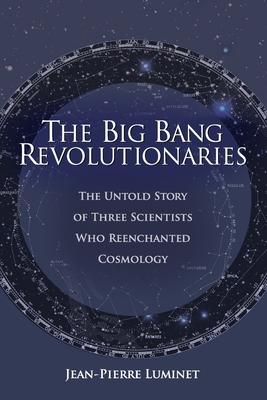Many widely read scientific writers of our day mistakenly attribute the concepts of the expanding universe and the Big Bang to Edwin Hubble and Albert Einstein. Hubble did provide evidence of an expanding universe, but he neither discovered such evidence nor accepted the radical idea that space itself was expanding. As for Einstein, he held out against the idea of an expanding universe for more than a decade, and ceased working in the field as soon as he had to amend his view. The real heroes of the Big Bang revolution are the Russian Alexander Friedmann and Belgian priest Georges Lemaître. That they are virtually unknown to the general public is one thing. That their contribution is underestimated by astrophysicists and cosmologists is another, for the concepts they promulgated are among the most remarkable achievements of twentieth-century science. The Big Bang Revolutionaries amends the record, telling the remarkable story of how these two men, joined by the mischievous George Gamow and in the face of conventional scientific wisdom, offered a compelling view of a singular creation of the universe in what Lemaître termed a "primeval atom."
| FindBook |
|
有 1 項符合
luminet的圖書 |
 |
$ 1137 | The Big Bang Revolutionaries: The Untold Story of Three Scientists Who Reenchanted Cosmology
作者:Luminet 出版社:Discovery Institute 出版日期:2024-04-23 語言:英文 規格:平裝 / 254頁 / 22.86 x 15.24 x 1.47 cm / 普通級/ 初版  看圖書介紹 看圖書介紹
|
|
|
圖書介紹 - 資料來源:博客來 評分:
圖書名稱:The Big Bang Revolutionaries: The Untold Story of Three Scientists Who Reenchanted Cosmology
|











